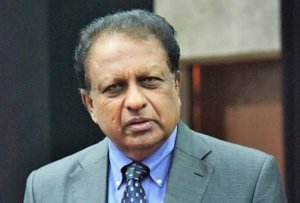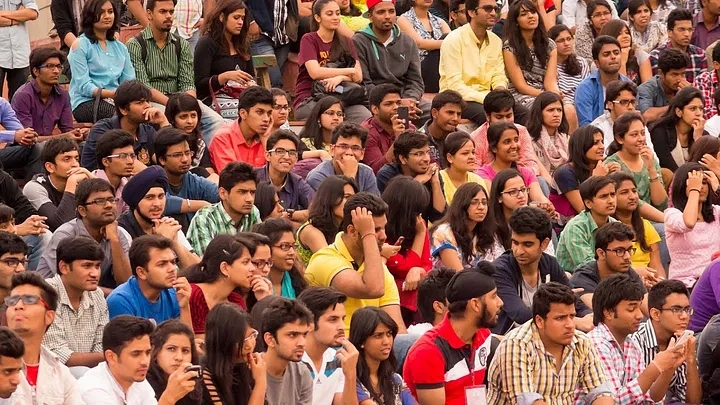
Dialogues With The Post-Corona Generation

The younger generation is a lot more positive and ambitious than the elderly
History will record that an era in human civilization ended at the end of 2019 and a new one commenced in the beginning of 2020. The most important concern of the young and old today is the shape of things to come in the post-Coronavirus world, regardless of when it dawns. But even the best futurologists concede that it is too early to have a clear picture in the absence of fundamentals regarding the demography and the economy of the new world.
Even the closest we have to the Delphic oracle, Henry Kissinger, has been rather vague on the contours of the emerging era. “The reality is the world will never be the same after the Coronavirus,” he states the obvious profoundly and adds, “To argue about the past only makes it harder to do what has to be done,” suggesting that there is no point in analysing the past. But he insists that “the crisis effort, however vast and necessary, must not crowd out the urgent task of launching a parallel enterprise for transition to the post-Coronavirus order.”
Finding the nature of “a parallel enterprise for transition” is an urgent task. In my search for the resource people for this task, I chanced upon an opportunity provided by a voluntary organisation called Altius, an offshoot of the World Malayalee Council, dedicated to train selected students from colleges in Kerala to be “globally competent and socially committed” to interview its members towards the end of the first lockdown period.
Twenty-six students, most of them in their first year in college, telephoned me one by one for no holds barred chats with no agenda and no time limit. What this exercise revealed was a confident young generation, clearly the inheritors of the post-Corona world, getting ready to build a future for themselves.
I was very energised by the experience and I found that conversations were more satisfying than the numerous columns I have been writing ever since the lockdown began just to give expression to my anxieties and frustrations. Sharing those with the inheritors of the post-Corona world was exhilarating. None of them sounded desperate or cynical. Each one had clear dreams, not wild and unreal, but achievable and realistic.
First of all, all of them took their involvement with Altius as an opportunity for self-development. The biggest change they mentioned was that they had learnt to get up early morning and to engage in an interaction with Altius leaders and others on human values and social commitment. They talked as though it was a miracle. They had never imagined that they would be able to impose that discipline on themselves.
Coming to the topics, it was mostly education that interested them. They were not sure that the present education system was adequate for the new world of bewildering technology. At the same time, they did not know which of the reforms would benefit them. The choice between the old yearly system and the new semester system, privatisation of education, arrival of foreign universities and so on. I gave them my views, but pointed out that the draft New Education Policy of the Union Government had shown the right path. Some brought up the important issue of industry-academia linkages and stressed the need for internship in industry etc. I said that the industry should plan in advance as to what kind of graduates it needed and invest in students to get them the right education and training. Some wondered why students did not have the opportunity to earn while learning. Others wanted religious studies to be included in the curriculum.
The second popular topic was public speaking. Many of them asked about the secret of becoming good public speakers. I told them my formula: acquire knowledge on a wide variety of topics, improve language skills, prepare systematically, develop a sense of humour and speak with authority as though the audience was not any wiser than you. I stressed that practice alone would make them perfect. I suggested that they should stand before a mirror and practice or record their speeches on video and watch for mannerisms and awkward postures. Reading the great speeches in history and listening to TED talks would be excellent. Many of them said that they could not overcome stage fright, but some reported progress in that area.
Surprisingly, civil service was not a career option for many of them. They thought it was out of reach for them. But I assured them that civil service was desirable and attainable with systematic and hard work. But most of them had other ideas like joining the armed forces, doing voluntary work, or becoming historians, teachers and businessmen.
Coronavirus came up frequently in terms of the shape of the post-Corona world, but none of the students seemed to be in panic. A sense of optimism and confidence that it can be contained was the most common feeling. They did not seem to have fully grasped its possible consequences like deep recession, poverty and famine. Nobody asked about the role of China or the state of international cooperation. No one had any illusion about the UN being effective in dealing with the crisis. Some felt that Coronavirus would give a new start to mankind and it might change our old attitudes and habits.
A common question was whether the abrogation of Article 370 and the Citizenship Amendment Act (CAA) would affect India’s image in the world. I pointed out that Article 370 and CAA were purely internal matters of India and foreign relations were not dictated by internal changes considered necessary for the benefit of the country or to rectify a specific situation.
In the lockdown days without travel, speeches, interactions, get-togethers and chance chats during casual encounters, the conversations with the inheritors of the post-Corona world came like summer rains on scorched ground.
I witnessed a confident, young generation, which saw the present pandemic as an opportunity and a challenge. The determination to overcome the challenge was more evident in the youngsters than a sense of foreboding and impending calamity prevalent in the older generation.
